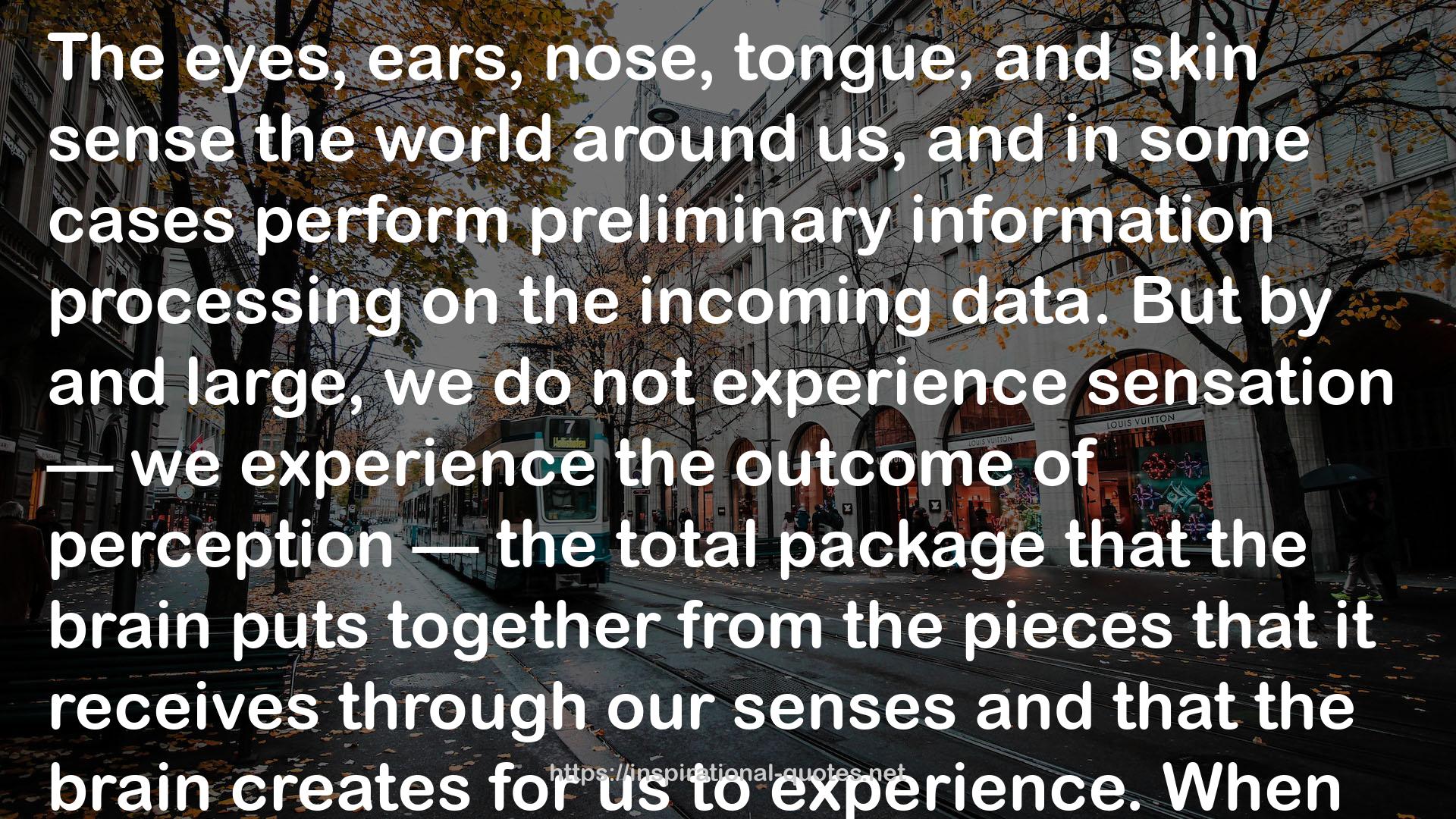" The eyes, ears, nose, tongue, and skin sense the world around us, and in some cases perform preliminary information processing on the incoming data. But by and large, we do not experience sensation — we experience the outcome of perception — the total package that the brain puts together from the pieces that it receives through our senses and that the brain creates for us to experience. When we look out of the window at a view of countryside, or when we look at the face of a beautiful woman, we don’t just see a mess of colors and shapes — we see, instead, an image of a countryside or an image of a woman. The importance of a science is that it describes and explains each phenomenon in natural and rational way, if it can do this, and never attempts to use impossible illusion and irrationality, if it cannot. When science cannot clarify, religion covers empty space for a while. For instance, most of the mystical hallucinations of vision is the result of a so-called synesthesia — an experience in which one sensation (e.g. hearing a sound) creates experiences in another (e.g. vision). Most people do not experience synesthesia, but those who experience this phenomenon associate varoious perceptions in unusual ways, for instance, when they taste a particular food they can also percieve some colors or when they see certain objects they can clearly hear some sounds. Not knowing what is going on in the brain and sense organs, religion can easily connect this phenomenon with divine intervention, employing incredible myths around it for its benefit. It's true that science cannot explain everything and there is a high probability that it cannot do this forever, but it will never allow someone to wash human brain and keep it under control. "
― Elmar Hussein
Image for Quotes

